|
1-
Introduction
2 -
The Liberal Government's Warm Embrace of
Ukraine's Nazi Collaborators
3 -
Historical Amnesia and the Blinding
Effects of Propaganda
4 -
The Nazis as Victims? Sure, just Blame the
Russians!
5 -
Canada needs Truth and Reconciliation, not
Denials and Obfuscation
6 -
Historical Denial among Canada's
ultranationalist Ukrainians
7 -
Michael Chomiak, The Ukrainian Central
Committee and its Nazi Newspapers
8 -
Aryanisation and the "Mighty Wurlitzer"
9 -
The
Ukrainian Canadian Congress and its Fascist Roots
10 -
Getting them Early: Building the ultraNationalist Cause among
Children and Youth
11 -
The Freeland-Chomiak Parallels in Advocacy
Journalism
12 -
Was Freeland an "Accidental Journalist," or Groomed for the
Job?
13 -
In 1989, Freeland was Declared an "Enemy of
the Soviet State"
14 -
A Chomiak-Freeland Fixation on Jewish
Oligarchs running the Kremlin
15 -
Freeland's Kremlin-Oligarch Theory goes
Global with Jewish Plutarchetype
16 -
Institutionalised Confidence Scams: An Open
Conspiracy of Oligarchs, Politicians and Journalists
17 -
Escaping the War Racket starts with Seeing
the Elephant
18 -
Just Following Orders? Which Orders?
19 -
Is there a Bear in the Room? Kill it!
20 -
The Collective Care and Feeding of
Russophobia
21 -
The Need for Truth and Reconciliation
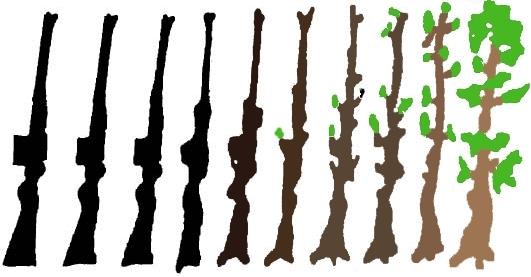
Press for Conversion!
If you appreciate the work that went into this research, please
subscribe &/or donate.
You can mail this
coupon
to COAT, or use the
Paypal link
on our homepage. Subscription prices:
3 issues ($25), 6 issues ($45).
Subscribe now and get this 56-page issue
for free, or order it for $10.
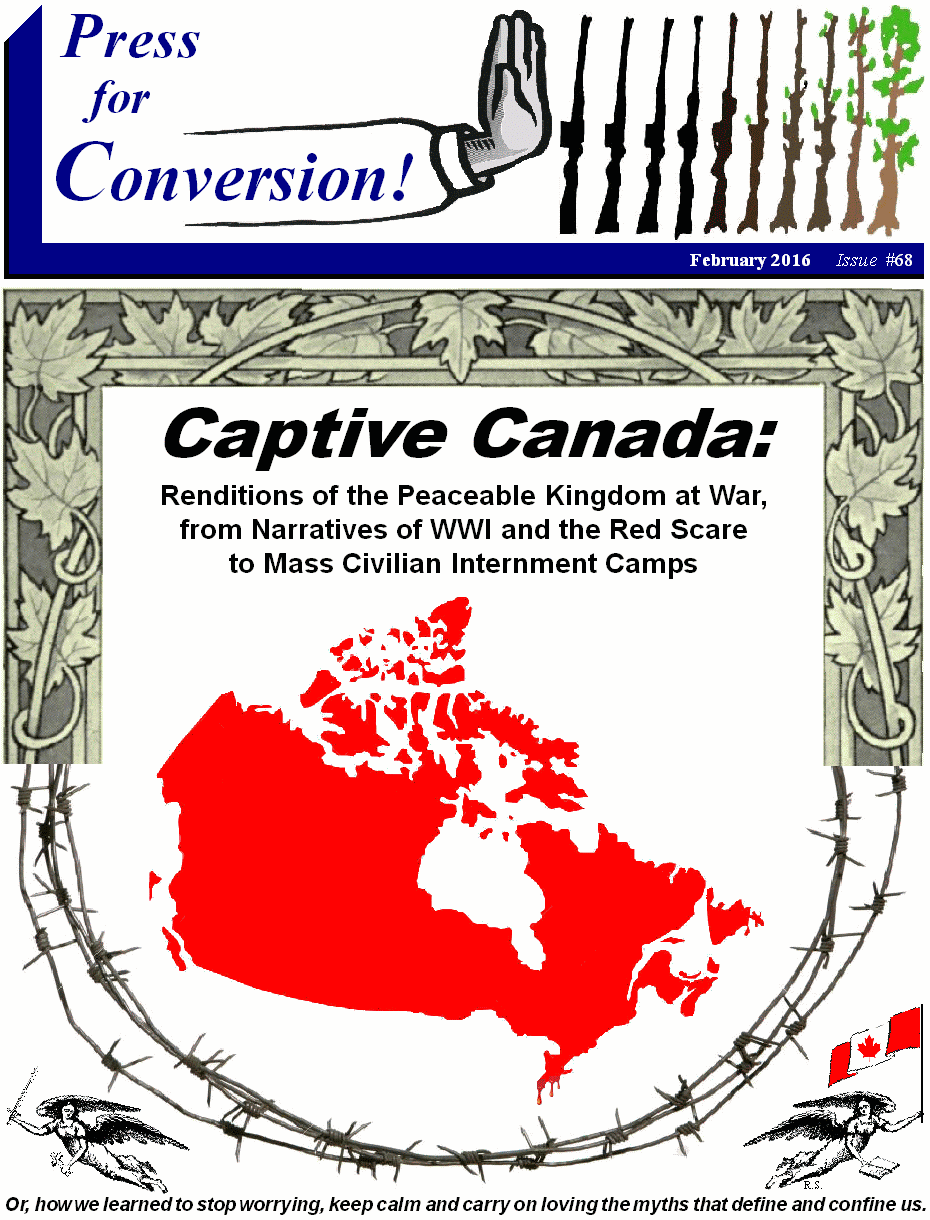
Captive
Canada:
Renditions of the Peaceable Kingdom at War, from
Narratives of WWI and the Red Scare to the Mass Internment of Civilians
Or, how we learned to stop worrying, keep calm and carry on loving the myths that define and confine us.
This issue (#68) deals with the mass internment of Ukrainian Canadians, this
community's left-right split and the mainstream racist, xenophobic
anti-communism of progressive "Social Gospellers" (like the CCF's J.S.
Woodsworth) who were so captivated by their false beliefs that they
carried out the genocide of First Nations and turned a blind eye to
government repression during the 20th-century "Red Scare."
The main thesis is captured
here:
"The
Canada Syndrome,
a Captivating Mass Psychosis" |
Part 14
A Chomiak-Freeland Fixation on Jewish
Oligarchs running the Kremlin
The most curious similarity between the
journalistic oeuvres of Freeland and her grandfather is that they both
advanced a peculiar fixation on conspiracy theories about wealthy Russian
Jews who they believed were exerting inordinate control over the Kremlin.
For Chomiak's part, the newspapers under his lead helped fuel the Nazi's
"Big Lie" about a supposed plot between Moscow's top politicians and a
powerful clique of Jews thought to be pulling the Kremlin's strings.
Freeland too has repeatedly perpetuated
very similar themes in postSoviet politics. Since the mid1990s she has
returned again and again ‑ in articles, speeches, interviews and books ‑ to
focus on the economic and political power exercised behind the scenes by a
small pact of Russia oligarchs who are said to be mostly Jewish.
After serving some of the world's largest
corporate media outlets as a freelancer in Lviv Ukraine, Freeland moved to
the Russian capital. She soon became The Financial Times' Moscow
Bureau Chief. During her years there, Freeland interviewed some of Russia's
top oligarchs. In one very influential 1996 Financial Times article,
called "Moscow's Group of Seven," a Jewish oligarch named Boris Berezovsky
is said to have boasted that he was among seven wealthy Russian men ‑ six of
whom were widely identified as Jewish ‑ who, he claimed without any proof at
all, controlled 50% the country's entire economy. This article, led by
Freeland's byline, named all the "bankers" and described them as "a
tight-knit group," a "pact," "a new centre of power in Russia," and an
"elite pooling their efforts" to "control Russia's two top television
networks, a popular radio station and a growing number of national
newspapers ‑ assets they are happy to use to advance their agenda."[i]
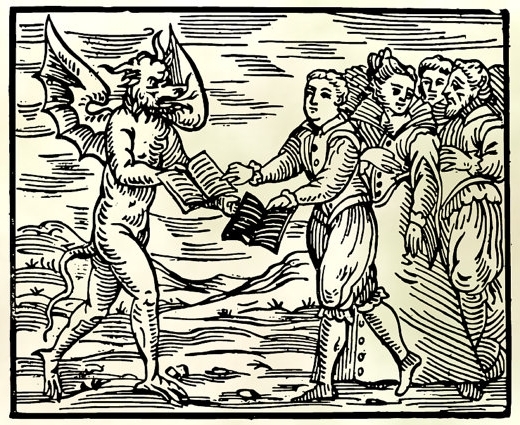 This article, headlined by Freeland, cited
unnamed "critics" who were said to have described these men as an "unelected
oligarchy whose rise to power jeopardises the country's chances of becoming
a democratic state with an open market economy based on the rule of law."
Thus scapegoated, this small mostly-Jewish clique of bankers were also said
to be "very dangerous," "insolent," "not subject to any rules," and a
"mafia" with whom Russian politicians had made a "Faustian bargain." (Faust
was a character of fiction who sold his soul to the devil. It is an
interesting choice of tropes to target Russian leaders for conspiring
with Jewish financiers in the mid1990s because it made illusion to a very
famous German legend which had been immensely popular with the Nazis during
the Third Reich.[ii]) This article, headlined by Freeland, cited
unnamed "critics" who were said to have described these men as an "unelected
oligarchy whose rise to power jeopardises the country's chances of becoming
a democratic state with an open market economy based on the rule of law."
Thus scapegoated, this small mostly-Jewish clique of bankers were also said
to be "very dangerous," "insolent," "not subject to any rules," and a
"mafia" with whom Russian politicians had made a "Faustian bargain." (Faust
was a character of fiction who sold his soul to the devil. It is an
interesting choice of tropes to target Russian leaders for conspiring
with Jewish financiers in the mid1990s because it made illusion to a very
famous German legend which had been immensely popular with the Nazis during
the Third Reich.[ii])
Harvard Political Science professor
Daniel Treisman has stated that in the
"famous 1996 Financial Times interview,"
Freeland's "desire to reduce Russian events to a simple morality tale seems
to take over."[iii]
Because this simplistic narrative "is
difficult to fit with the evidence," Treisman said, "Freeland, perhaps
because her view on this is widely shared, does not bother to provide much."[iv]
Although Freeland's "story line," Treisman
continued, "fits ... Western opinion on Russia .... it
does not fit well with the statistics."[v]
Treisman further lamented that, despite all
of the facts proving otherwise, "[s]till the 50 percent claim was widely
repeated as if credible...." Going as far
as to say that the "claim was demonstrable nonsense,"
Treisman calculated that these seven men
actually held only 6% of Russia's GDP. He admitted however that, with some
very convoluted manipulations, the figures might conceivably be inflated to
10%, or possibly even 15% at the very most, but certainly no where near 50%.[vi]
The "Faustian bargain" that Freeland
referred to was known as the "loans for shares" deal. Treisman however
showed that "[i]n fact, only three of the seven original oligarchs ... won
anything in loans for shares." He also pointed out that Freeland's repeated
focus on the so-called "outsiders," composed mostly of Jewish oligarchs, was
also unfair. This, he explains, is because "the loans for shares winners
were a small subset of Russia's wealthy at the time, and an even smaller
subset today."[vii]
Treisman also points out that "[t]he biggest beneficiaries were not the
so-called 'oligarchs,' but Soviet-era industrial managers"[viii]
It is this group of so-called "red directors," who ‑ contrary to Freeland's
narrative ‑ received most of the Russian state resources that were
privatised. These "red directors" however were very rarely Jewish. In
fact, according to Serguey Braguinsky, a business professor at the
University of Maryland,
only 1.7% of the "red directors" were Jewish.[ix]
 But
despite all of these serious problems making the actual facts match her
narrative, Freeland used her media platform to confidently repeat again and
again the now-popularly accepted fake news about the political control
wielded by a small "tight-knit" "pact" of Russian oligarchs who were mostly
Jews. She returned to this theme, for example, in her blockbuster book,
Sale of the Century: Russia's Wild Ride from
Communism to Capitalism (2000). But
despite all of these serious problems making the actual facts match her
narrative, Freeland used her media platform to confidently repeat again and
again the now-popularly accepted fake news about the political control
wielded by a small "tight-knit" "pact" of Russian oligarchs who were mostly
Jews. She returned to this theme, for example, in her blockbuster book,
Sale of the Century: Russia's Wild Ride from
Communism to Capitalism (2000).
In a chapter in that book, called "The Faustian Bargain," Freeland tied her
German metaphor about the devil even more closely to religious imagery.
Freeland says that the deal, which made the whole Russian "economy ...
irredeemably warped" and "its government unquestionably corrupt":
"turned out to be a Faustian bargain,
laying a corrupt, inegalitarian foundation for everything that came after
it. In a way, it was Russian capitalism's original sin."[x]
(Emphasis added.)
In
reviewing this book, Treisman took exception to Freeland's extravagant use
of hyperbole to overstate her inaccurate message:
"The [loans for shares] program was a 'Faustian bargain,' wrote one
journalist [Freeland], a 'fiendishly complicated scheme,' in which
the liberal ministers had sold their souls to a cabal of unscrupulous
tycoons, who — switching metaphors ‑ quickly metamorphosed into a
'Frankenstein's monster.' .... (Freeland, 2000, pp.22-3, 169-89)"[xi]
(Emphasis added.)
Over the years, Freeland has repeatedly used her "Faustian bargain" metaphor
to describe Russia's "loans for shares" program. It became one of her
favourite, go-to expressions for provoking the imagination of her readers
about the Kremlin's "original sin" with a "Frankenstein's monster" of mostly
Jewish bankers.[xii]
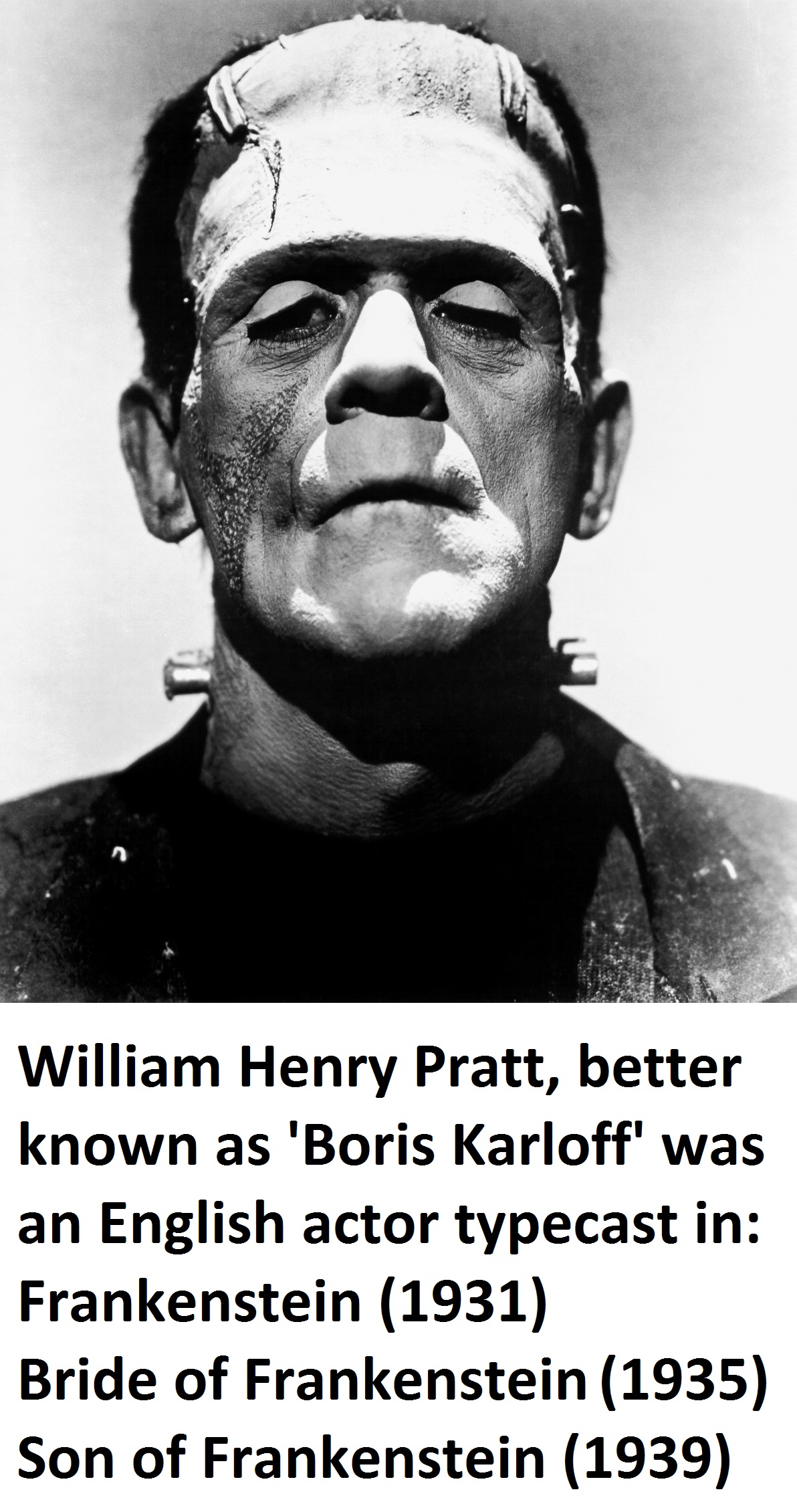 Freeland's choice of tropes also included some other interesting Germanic
references. Besides Faust's bargain with the devil, Freeland also drove
home the diabolical nature of the deal by using the word "fiendishly."
Derived from the Germanic root Feind, this word for enemy conveys the
meaning of a "devil," "demon" or "Satan." Freeland's choice of tropes also included some other interesting Germanic
references. Besides Faust's bargain with the devil, Freeland also drove
home the diabolical nature of the deal by using the word "fiendishly."
Derived from the Germanic root Feind, this word for enemy conveys the
meaning of a "devil," "demon" or "Satan."
Freeland also made an allusion to
Mary Shelley's 1818 novel about a golem-like "monster" created by "Frankenstein."[xiii]
Franckenstein is of course a very German name which recalls "The Franks," a
4th century grouping of powerful Germanic tribes that ruled Western Europe.
In her book,
Sale of the Century, besides using suggestive German terminology and
stretching statistics to suit a particular "morality tale," Freeland
overstated the Jewishness of the Faustian "Group of Seven." Vladimir
Potanin, the one nonJewish member in this cabal, was by far the wealthiest
of all the Russian oligarchs. In fact, Potanin was the only Russian on the
Forbes' list of billionaires for 1998 and, even then, he only had $1.6
billion, ranking him 199th out of the world's 209 billionaires. Even
Canadian Kenneth Thomson, the 2nd Baron of Fleet and owner of the Globe
and Mail, had
nine times more money ($14.4 billion)[xiv]
than Potanin.
(Freeland was the
deputy editor of
the Globe and Mail, 1999-2001. This paper came to Freeland's
defence by spreading the fake news that the scandal about her grandfather's
role as a Nazi newspaper editor was a Russian conspiracy to undermine
Canadian democracy.)
The
much-repeated and already overly exaggerated claim that a monstrous cabal of
mostly Jewish bankers owned 50% of the Russian economy, was later overblown
beyond all proportions when Freeland took this fake news and ran with it. For
example, in a Harvard Business Review interview about her book
Plutocrats (which won the National Business Book Award), Freeland stated
very clearly that "In Russia, as it happened, most of the oligarchs were
Jewish."[xv]
This stretched the original falsehood about Jewish predominance within a
self-selected group of seven Russian oligarchs, to the outrageous allegation
that most Russian oligarchs were Jewish. Freeland's spin on a spin
took what began as "demonstrable nonsense" and whirled it to a whole new
level of mass media mythology.
Other major
mainstream journalists jumped into the ring of this media circus. For
example, John Lloyd (who like Freeland is a former Financial Times'
Moscow Bureau Chief), followed the release of her 2000 book with an article
which quoted her about the oligarchs of Russia. In it, Lloyd stated
unequivocally that "In a country where Jewishness is best kept quiet, nearly
all of the oligarchs are Jewish."[xvi]
A similarly-false blanket statement was made by Ian Birrell in the
Guardian newspaper's 2012 review of Freeland's book, Plutocrats.
Birrell stated outright that "most Russian
oligarchs, for example, were Jews clever and driven enough to get
degrees from top universities under the old Soviet system – and often they
are immigrants."[xvii]
(Emphasis added.) (This journalist ‑ who often writes about fake news but
can't see his own contributions to the genre ‑
was a speechwriter for Conservative David
Cameron during the 2010 election campaign which led to his becoming
Britain's prime minister.[xviii])
So we have to ask, what percent of Russian
oligarchs are actually Jewish? Anyone who
searches the web trying to ascertain the Jewishness of Russian oligarchs will
soon realise that this task is like negotiating a minefield of fascist hate speech.
Many of the sources which immediately arise are extremely antiSemitic and
proNazi. Clearly the issue of wealthy Jewish oligarchs controlling the
Kremlin is alive and well, if not thriving among online fascists.[xix]
Thankfully, reputable academic research on
this subject is also not difficult to find. Treidman's 2010 article for
example cited the work of Serguey Braguinsky, a doctor of economics who
analysed the first cohort of Russian oligarchs who emerged in the 1990s. His
research on the "296 most prominent first-wave post-communist business
tycoons" found that "while 13.98% of oligarchs were of Jewish ethnicity and
12.9% were other ethnicities (Georgians, Chechens, Tatars, etc.)," those of
"Russian or Slavic (Ukrainian or Belorussian) ethnicity comprised 73.12% of
the sample."[xx]
While only 39 of the 296 Russian oligarchs were Jewish, this was still high,
he notes, because only 0.16% of the population identified themselves as
Jewish in Russia's 2002 census. Setting aside the complicating factor that
some census respondents may have chosen not to identify themselves as
Jewish, this was still a far cry from Freeland's popularisation of the idea
in an interview with the
Harvard Business Review, in which stated -- for the record -- that "In Russia, as it happened, most of the oligarchs were Jewish."[xxi]
(Continue
reading this article)
|
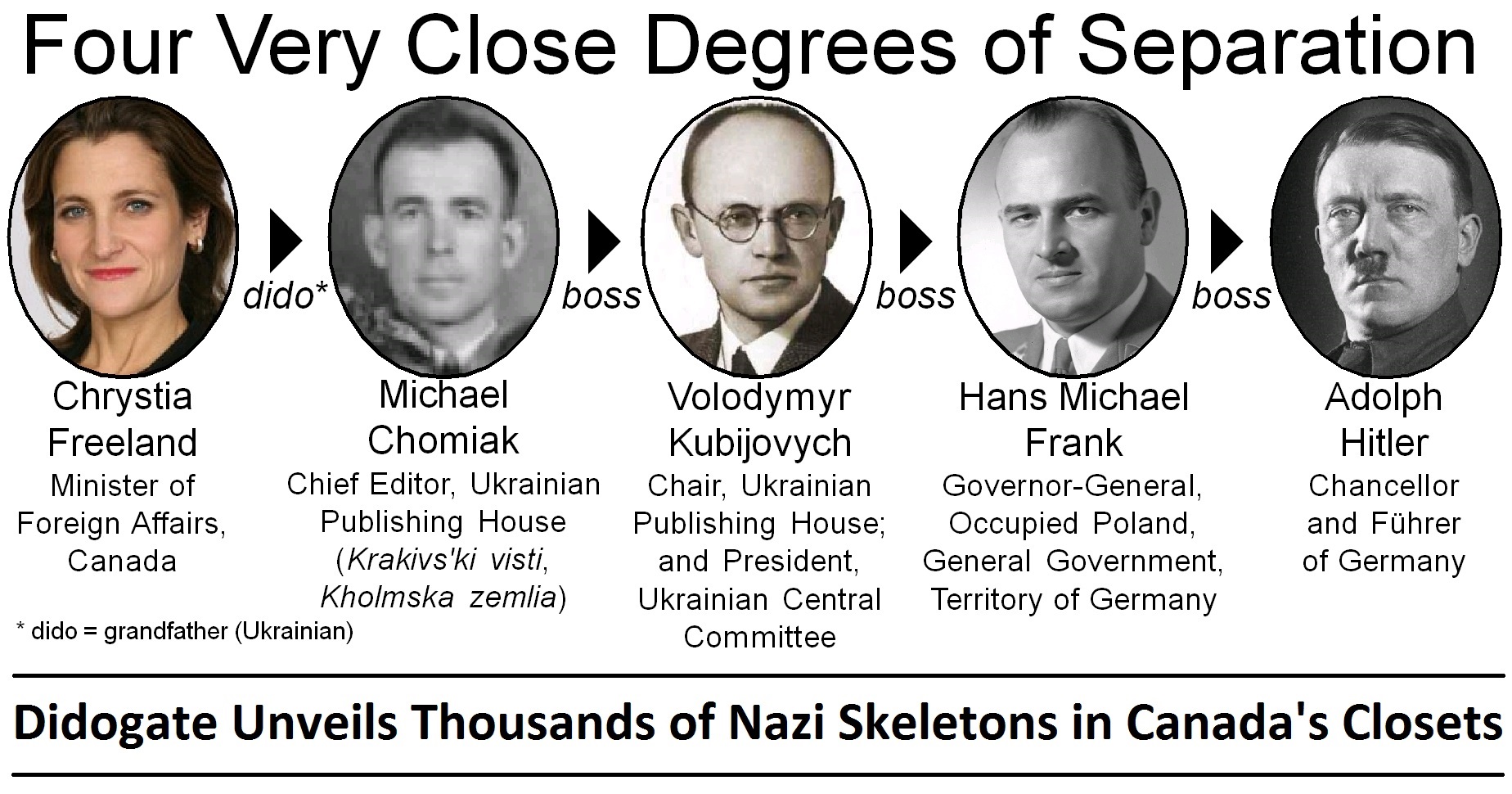


 But
despite all of these serious problems making the actual facts match her
narrative, Freeland used her media platform to confidently repeat again and
again the now-popularly accepted fake news about the political control
wielded by a small "tight-knit" "pact" of Russian oligarchs who were mostly
Jews. She returned to this theme, for example, in her blockbuster book,
Sale of the Century: R
But
despite all of these serious problems making the actual facts match her
narrative, Freeland used her media platform to confidently repeat again and
again the now-popularly accepted fake news about the political control
wielded by a small "tight-knit" "pact" of Russian oligarchs who were mostly
Jews. She returned to this theme, for example, in her blockbuster book,
Sale of the Century: R Freeland's choice of tropes also included some other interesting Germanic
references. Besides Faust's bargain with the devil, Freeland also drove
home the diabolical nature of the deal by using the word "fiendishly."
Derived from the Germanic root Feind, this word for enemy conveys the
meaning of a "devil," "demon" or "Satan."
Freeland's choice of tropes also included some other interesting Germanic
references. Besides Faust's bargain with the devil, Freeland also drove
home the diabolical nature of the deal by using the word "fiendishly."
Derived from the Germanic root Feind, this word for enemy conveys the
meaning of a "devil," "demon" or "Satan."